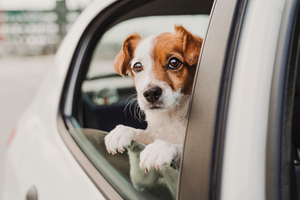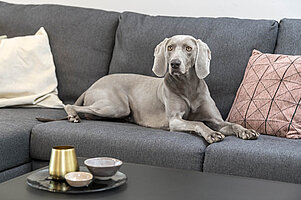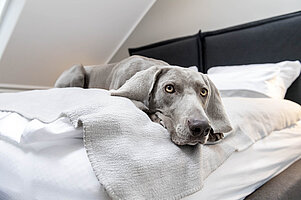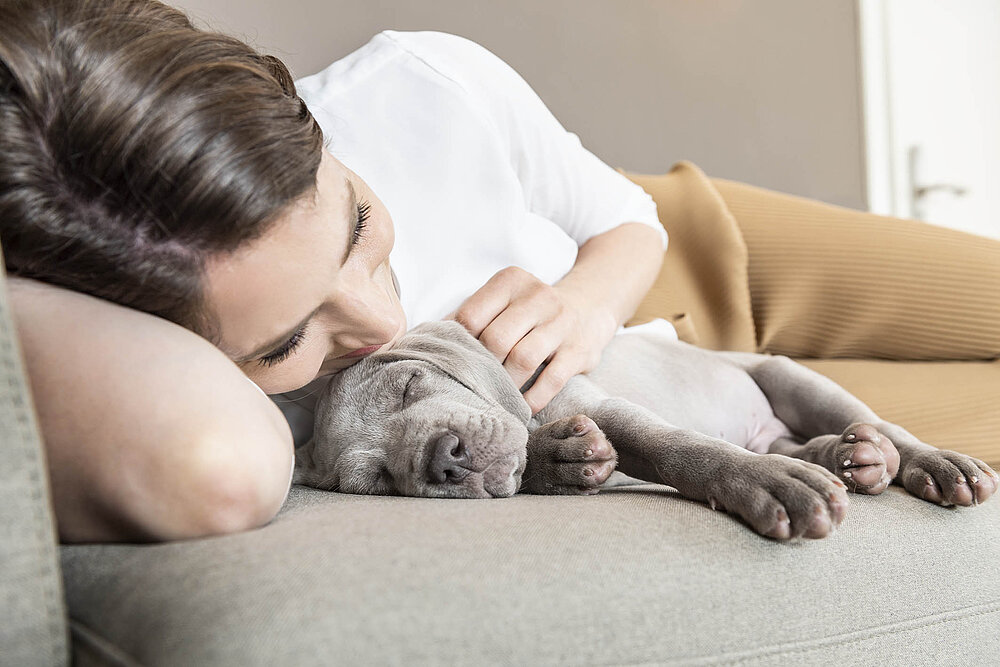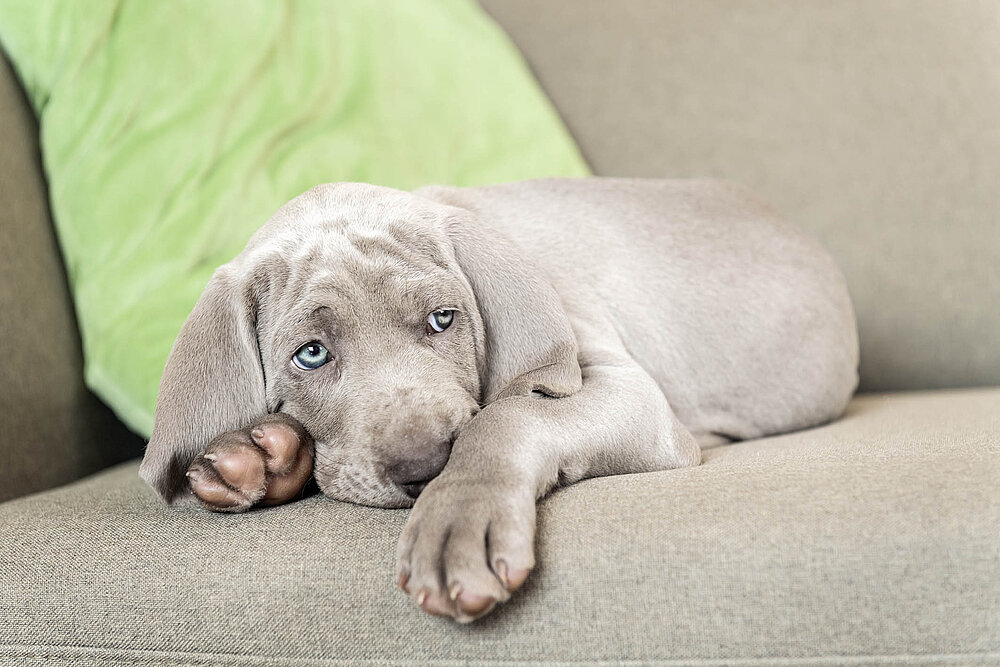
Stress-free house training with Nature’s Miracle®
Finally – the sweet new puppy is moving in! However, the initial joy can quickly pale with the first aromatic accident at home. Find out here how to cope easily with this challenge and get your puppy house-trained.
Puppies are so cute – but they also need to relieve themselves! And very few know what is expected right from the outset. No need to worry, every dog can be house-trained. Our four-legged friends are naturally clean and have no interest in dirtying their home. Set a course for success as early as possible with small and large calls of nature.
House-training plan for dogs
Because all dogs are individual, the time it takes to house-train them varies. It depends for example on whether they had outside access at the breeder's or were reared in a dog run. Basically, the less they are inside, the quicker puppies will be house-trained.
But there are some points to keep in mind to help you remove poop as quickly as possible and get your puppy house-trained.
1. Going outside
Puppies have rather small bladders and need to pee a lot. So from the start, get used to going outside a lot with your puppy. As a rule of thumb, this will be every two hours for puppies under three months, and every three hours between three and four months. Puppies older than five months can hold on for up to four hours. Letting them outside, particularly after they have been sleeping, eating or playing with you, will prevent puddles indoors. And the puppy will learn that it needs to go outside to relieve itself.
2. Good boy!
If your puppy does its business outside like a good dog, give it plenty of praise. This shows it what behaviour you want from it. And giving it a small toy will reinforce the positive feedback. Always let your puppy sniff around and explore the area a little.
3. Set up routines
Dogs like using the same place to relieve themselves and prefer a specific surface to do their business. You can use this to your advantage. The more your dog relieves itself in a spot chosen by you, the more it will prefer going in that same spot. By setting up this routine, you can train your dog to always go in the same spot. The opposite also holds true: if your dog has relieved itself indoors, chances are high it will choose the exact same spot again. To prevent this, try blocking off the area where the accident happened or keeping a close eye on your puppy if it wanders near the area.
4. Keep an eye on puppies
Keep a close eye on your puppy initially. Close bedroom doors and keep it near you. Is it sniffing the ground a lot? Is it starting to circle? Bitches squat when they need to pee. Male dogs mostly pee while standing with their hind legs stretched back a little. Many dogs also whine quietly when they need to go – especially at night. If you notice that your dog is ready to go, bring it outside quickly – preferably by lifting and carrying it. Listening to your dog will prevent hassle.
5. Catching them in the act
Sometimes you may actually see them deliberately lower their rump to the floor. If this happens, you need to act fast: Clap your hands loudly, call out “No!” and bring it outside as quickly as possible. When the puppy does what it needs to do in the right place, give it plenty of praise.
6. Night-time toileting
Dogs also need to go at night. Go outside with your dog every night before you go to bed and every day straight after you get up. You will also have to get up at night and bring your dog outside, especially at first. It helps if your dog sleeps near you so you can hear when it is unsettled or gets up. Don’t worry, the periods between night-time excursions can be extended little by little as your puppy learns to hold on.
7. Accidents happen
If there’s a wet patch or “fragrant” heap indoors, under no circumstances should you punish your pet. For one thing, a puppy cannot make the connection between his accident and the punishment, for another you’re only increasing its confusion. Better to take a deep breath, grab some paper towels or poo bags and clean up the mess.
8. Clean up the right way
Remove stains, unpleasant odour and sticky residues with a quick spray of Nature’s Miracle® Urine Remover Dog. The bio-enzymatic formula in this urine remover is biologically based and specially designed to effectively remove these mishaps. This means that, when used as recommended, the product is totally safe for both your dog and your home. It is important to clean the area properly – and not just to appease both your nose and your nerves. When a spot still has “toilet” smells, a dog will often seek it out to do its business. This is why Nature’s Miracle® Urine Remover Dog thoroughly removes the smell – for the sake of both human and dog noses!
9. Be patient
It can take up to four months for dogs to have full control over their bladder. But many dogs can take up to a year before they are fully house-trained. The main thing to do is be patient. Bear in mind that your pet does not want to annoy you, it just needs your help to learn the right behaviour. Develop routines to help your dog learn over the long term when he needs to go. The more you go outside, the less mess you will have to clean up.
Sources:
- Katharina Schlegl-Kofler: Unser Welpe; GU Tierratgeber
- Henry R. Askew: Treatment of Behaviour Problems in Dogs and Cats; Publisher : Wiley-Blackwell
- Herz für Tiere: So wird der Welpe schnell stubenrein (Abruf 24.08.2021)
herz-fuer-tiere.de/haustiere/hunde/hunde-erziehung/so-wird-der-welpe-schnell-stubenrein
